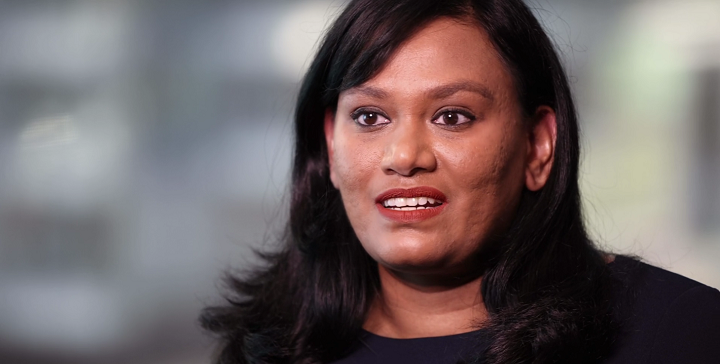
Artificial Intelligence (AI) is rapidly advancing and has the potential to have a transformative impact on clinical research and development (R&D). We spoke to Chathuri Daluwatte, who leads Alexion’s AI Diagnostics team, about the opportunity for AI technology to shorten the diagnostic journey for rare disease patients and her personal connection that drives her work.
Can you explain the role of the AI Diagnostics team?
First, I think it is helpful to define how we think about AI, which can have a multitude of definitions across industries. In the life sciences industry, we consider it a calculation or an algorithm that goes beyond rule-based calculation to reach a solution. The AI diagnostic team at Alexion is focused on exploring and harnessing opportunities to use these algorithms to improve the diagnostic journey for rare disease patients.
This is critical because the diagnostic experience, which is often referred to as a diagnostic odyssey, can be long and arduous, especially when a patient’s disease is not well understood. This is far too common for people living with rare diseases, where it can take an average of five years, but often longer, and involve visits to an average of seven specialists to reach an accurate diagnosis. We believe that AI can have a significant impact on this journey, enabling patients to get answers more quickly.
How do you see AI helping to shorten the diagnostic odyssey?
I am in an interesting position as both a patient and an expert in the field. I live with a rare disease that took 12 years to accurately diagnose, and I can attest to the acute challenges associated with getting answers when physician awareness of your condition is low. My own experience is a prime example of the opportunity AI represents.
The first test to try to identify the cause of my symptoms was an ultrasound, evaluated by someone who was not a rare disease specialist, and I didn’t receive a diagnosis from that test. Twelve years later, I was diagnosed after an ultrasound test was reviewed by a rare disease specialist. I believe that if that first health care professional had been able to use AI on my original ultrasound, it would have prompted them to consider my rare disease, even though they weren't an expert on the subject.
The idea is that AI will enable knowledge, normally concentrated among experts and specialists, to be widely accessible across patient care teams, especially among frontline healthcare providers—where rare disease patients typically begin their diagnostic journey. These technologies have the potential to help physicians parse through a wealth of data and identify patterns that could help them to more rapidly reach an accurate diagnosis.
How did you get involved in this field?
My interest started with computer programming as a child. I wrote my first programme when I was 10 years old, and since then, I’ve always had a passion for computer science. I liked the experience of creating something that didn’t exist, and AI is powering a lot of those opportunities today. I have always been curious about biology as well so I sought a path that would allow me to merge these two disciplines.
I got my PhD in Biomedical Engineering and have since dedicated my career to harnessing the power of AI to support the life sciences. I started with roles in medical devices and that ultimately led me to work in the pharmaceutical industry where there is immense potential to bridge medicine and technology through AI to improve outcomes for patients.
What about your work excites you the most?
I am very optimistic about what I view as the unlimited potential of AI across a spectrum of diagnostics. A growing investment is being made across the healthcare industry in this technology, and we’re primed as an organisation to innovate with this technology to improve the patient experience.
In addition to AI’s role in fostering greater awareness of rare diseases, there’s a wealth of opportunity to harness AI to support clinical development, including trial enrolment, companion diagnostics and digital therapeutics. I thrive on exploring new areas of study, and there is so much uncharted territory in AI.
Alexion as a leader in rare disease is really invested in advancing these possibilities. The collaborative nature of this organisation and our culture of rolling up our sleeves to get the work done for the people who need it most positions us to deliver on this potential, and that is really thrilling.
What’s one lesson you’ve learned from working in rare disease R&D?
I’ve learned the importance of diversity of thinking, which is critical for the development and advancement of AI as well as many other aspects of rare disease R&D. By this I mean concepts like gender or race, but also the practice of medicine. When it comes to AI’s utility, it is only as valuable as the data we give it. It’s imperative that we continue to champion bringing all angles of diversity into every aspect of our work, so the data AI is using is reflective of the people we seek to help. Only then can we fully leverage the potential of AI to drive meaningful change and ensure no one is left behind as this technology — and the diagnostic advances it enables — evolves.
Learn more about our scientists, innovative culture and career opportunities at Alexion.
Veeva ID: GL/NP/0151 V1
Date of preparation: June 2024